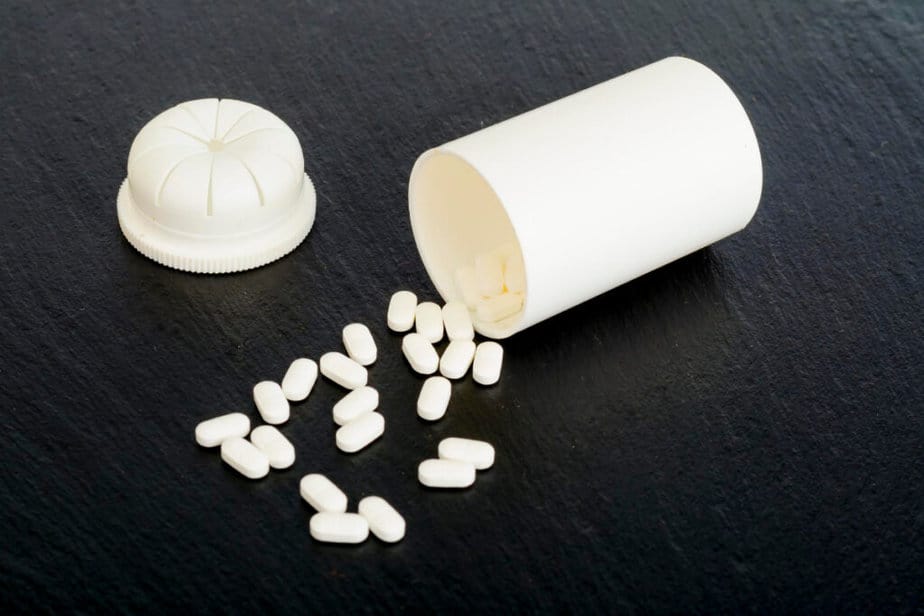Acetaminophen toxicity is a common cause of liver damage. It occurs when someone takes too much acetaminophen (the active ingredient in over-the-counter medications such as Tylenol).
Acetaminophen has become the most commonly used drug in the United States. Unfortunately, many people believe that taking acetaminophen will help them feel better faster. But acetaminophen can be very dangerous.
But if you do suspect that you have acetaminophene toxicity, you should immediately stop taking any medication containing acetaminophen. And if you experience symptoms of liver damage, you should seek medical attention immediately.
This article will cover the effects of acetaminophen on the liver, symptoms of acetaminophen toxicity, and how to protect your liver from toxic damage.

Acetaminophen Effect on the Liver
So what does all this mean for people who are concerned about their health, and who want to protect their liver?
Well, ALT is an enzyme known as alanine transaminase that helps metabolize protein. When the liver is damaged, ALT is released in the bloodstream, increasing ALT levels, and indicating a host of potential liver problems.
The human liver contains thousands of enzymes, special types of protein cells that help necessary chemical reactions to take place. Enzymes trigger activity in the body’s cells, speeding up and facilitating naturally occurring biochemical reactions, and maintaining various metabolic processes within the liver.
The liver performs many important functions to keep us healthy. It makes enzymes and bile that help digest food; it converts food into substances needed for life and growth; and it removes harmful material from the blood. From circulation to digestion, the liver continuously processes the blood used by the rest of the body.
While the liver is capable of regenerating itself, its capacity to repair itself can be seriously impaired by repeated or extensive damage, such as that perpetrated by the negative effects of acetaminophen.
The Journal of the American Medical Association (JAMA) reports that when given the maximum approved daily dosage of acetaminophen.
Acetaminophen is a substance present in a range of common medications including Tavist Allergy/Sinus/Headache Caplets, Vicks DayQuil Multi-symptom Cold/Flu Relief Liquid, and Tylenol – test subjects developed early signs of possible liver damage.
In the JAMA study published July 5, 2006, lead researcher Dr. Paul Watkins of the University of North Carolina reported that between 31 and 44% of the 145 volunteers he tested experienced maximum ALT levels – more than three times the upper limit of normal – as a result of recommended daily doses of acetaminophen.
Significantly, none of the volunteers in the study who received a placebo (did not receive acetaminophen) had ALT elevations of this level.
How to Protect Your Liver from Toxic Damage
According to the Harvard Women’s Health Watch, 56,000 emergency room visits and approximately 458 deaths from acute liver failure each year are attributable to acetaminophen overdose. And acetaminophen-related liver failure seems to be increasing.
The results of Dr. Watkins’ study indicate that even the recommended daily allowance of acetaminophen can cause an overdose, resulting in liver damage.
With this in mind, the obvious solution to avoiding becoming a statistic would be to stop using acetaminophen.
However, this is not an option for everyone, and since there are a myriad of other potentially liver-damaging toxins being ingested by people every day, it makes sense to implement a multipronged health regimen.
The regimen is aimed at detoxifying not only the liver, but the rest of your body as well. But first, here are a few tips for practicing safe acetaminophen use.
Tips for Avoiding Acetaminophen Toxicity
- Read the label: The maximum recommended adult dosage is 4,000 milligrams per day (12 regular or 8 extra-strength acetaminophen tablets). Always use the lowest dosage first, and proceed from there without exceeding the daily maximum.
- Use caution with combinations: Many over-the-counter cold and flu medicines and prescription painkillers also contain acetaminophen. Make sure you are not exceeding the recommended intake when taking a variety of medications together.
- Take alternate painkillers: If the recommended daily dose of acetaminophen doesn’t control pain, talk to your health care provider about alternating acetaminophen with a non-steroidal anti-inflammatory drug, such as ibuprofen or aspirin.
- Be careful with alcohol: Most labels warn against using acetaminophen if you have three or more alcoholic drinks each day. Remember that everyone metabolizes alcohol differently, so it’s safer to avoid alcohol while taking acetaminophen.
And always remember, just because a drug is sold without a prescription does not mean that it is completely safe for everyone.
Symptoms of Liver Toxicity
If you experience these symptoms, you should stop taking products containing acetaminophen.
- Itchy skin
- Yellowing of your skin or the whites of your eyes
- Dark urine
- Upper right-sided abdominal pain
- Nausea and vomiting
- Unexplained flu-like symptoms
These symptoms are indications of potential liver toxicity, and you ought to contact your health care provider immediately.
Liver-Friendly Nutrition
If you already have liver damage, strengthening your body nutritionally is of vital importance because malnutrition will contribute to further damage.
Ensure you are getting the vitamins and minerals your liver needs to regenerate, particularly vitamins B1, B2, B6, calcium, and iron.
Remember, organic foods are much higher in nutrients than non-organic foods, and are highly recommended for improving health, and helping people to avoid organ toxicity.

The fewer foods you ingest that contain chemical additives and preservatives or that have been processed, the better off you and your liver will be.
Fiber is also essential for a healthy liver. In fact, the importance of fiber to the liver cannot be overstated. When your liver wants to get rid of a toxin, it dumps it into the digestive tract.
If there is enough fiber around, this toxin is taken out of your body with your next bowel movement. If not, these toxins can be reabsorbed into the bloodstream and the liver has to deal with them again.
Sometimes our busy lifestyles make getting enough fiber nearly impossible. For the health of your liver, consider adding a dietary psyllium-based fiber supplement to help balance things out on those low fiber days.
Recover and Regenerate Your Liver
The liver is one of the most active organs in the body. Unfortunately, our environment keeps the liver a little too busy dealing with toxins, including those perpetrated by seemingly harmless substances such as acetaminophen.
According to the JAMA study cited above, acetaminophen taken at the recommended dosages can cause liver damage, specifically increased ALT levels.
If there is one organ in your body that needs help, it’s your liver. You can lend your liver a hand by implementing a health regimen such as the one outlined above.
Here are other articles for the liver that you might be interested in:

